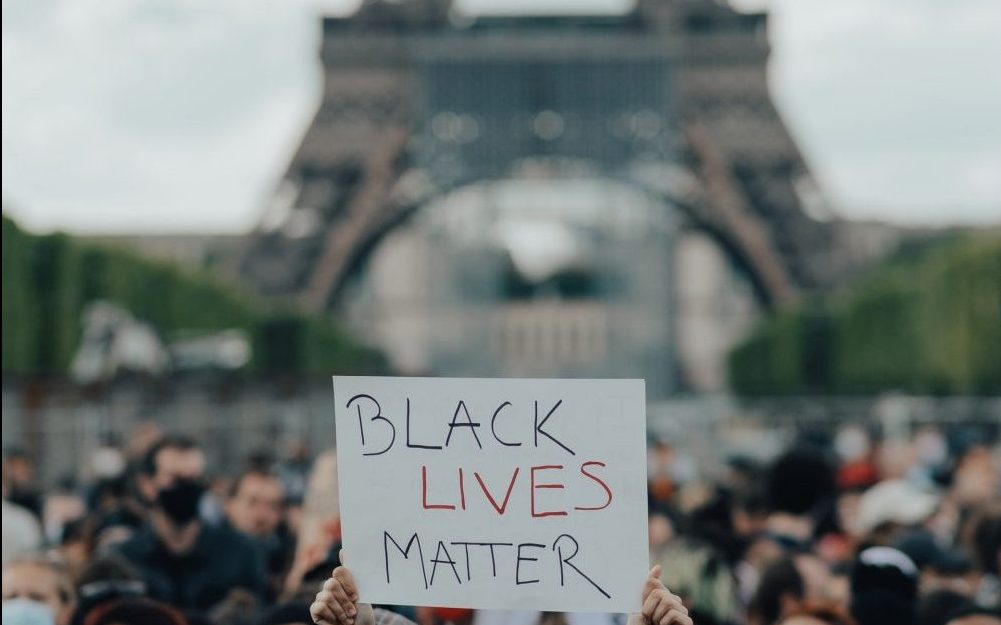Race Matters* is a twofold play on words: first, it is about ‘matters concerning race’ and other forms of racialised discrimination that underpin the quest for racial justice. Second, it affirms that ‘race does matter’ in and for education. That affirmation extends to the educational experience of students, teachers and support staff alike.
The ‘Race matters’ initiative is situated in the terrain between formal teaching and learning, and general social spaces of interaction. It is about creating semi-structured spaces, based on collaboration and co-production, to enable students and staff to ‘talk about’ race matters. It is constructed around three spaces: film shows, reading groups and experiential spaces. We welcome its use, unchanged or adapted, in other parts of the LSE or elsewhere. All we ask is that its source is acknowledged by linking to this blogpost.
Universities not only produce knowledge; they also legitimise it. This observation by Bhambra and Gebrial in a podcast of their book, Decolonising the University suggests that social concerns, such as gender inequalities, often begin life outside the university and are legitimised when incorporated within it. Anti-Racism is no different. The killing of George Floyd on 20th May 2020 reinvigorated the #BlackLivesMatter movement. Discourses on the relevance of statues as well as the need to rename public spaces, streets and buildings that derive from the spoils of slavery, colonialism and imperialism have energised discussions of race in the academy in general, and of a decolonised curriculum in particular. Integral to such discussions is also the broader question of The University and Social Justice.
Students in the Social Policy Department are highly internationalised. Their diverse backgrounds warrant space to share the insights they each bring to bear. Yet, spaces beyond that of the formal seminar in which to share experiences, and to reflect and discuss the relevance of academic knowledge are scarce. To address this absence, Dr Hughes convened a series of ‘film evenings’ (2019-20)** with support from the Department. During the last showing of the documentary, 13th by Ava DuVernay, we reflected on the importance of such informal spaces in education. It was there that the seeds of the Race Matters initiative was sown. On 14th October 2020 we discussed two short documentaries: Re-Tension and Somalinimo, which initiated discussions on belonging, being visibly othered, and subtle forms of racism. The films were in part chosen due to COVID-19 restrictions and to ensure free accessibility to material for all students.
In addition to the film showings, we designed two other spaces: reading, and experiential groups.
Reading groups, by nature of the task, involve a commitment to read and engage in discussions. To balance competing demands on time – students and staff – we chose book chapters, articles, blogposts, podcasts and poetry. Members who had not managed to read were welcomed as ‘listeners’. On 21st October we discussed the chapter ‘#AcademiaSoWhite’ by Ore Ogunbiyi, from the book Taking Up Space by Chelsea Kwakye and Ore Ogunbiyi.
Experiential groups are ‘closed’ safe spaces, designed to enable a sharing of racist and other racialised observations and experiences as well as a discussion of whiteness and white privilege. The subject matter calls for a high degree of care and sensitivity in constituting and organising such groups. An awareness of potential conflicts, discomforts and the silencing of voices is critical in constituting groups by race, gender and other social and cultural characteristics.
We firmly believe that the Race Matters initiative should not be a standalone tokenistic intervention. We have thus proposed that Race Matters is integrated into the ethos of the Department of Social Policy by encouraging staff engagement and edification; making it a standing item on the agenda of staff meeting; dedicating one Department seminar slot per term to race matters; encouraging and supporting students to undertake research on race matters; and holding a related annual conference and exhibition.
Finally, and importantly, we need to speak about time. To be educated in anti-racism and other forms of racialised discriminations is a slow and long process. Our aim is that this initiative forms one part of this process. It requires, most importantly, significant investments of time to curate contents and think through the above spaces. Time to reflect with the necessary depth is often in short supply given competing commitments.
If ‘Race Matters’ initiatives are to be taken seriously, it will require buy-in and resources. Race must matter at higher education’s core rather than its periphery.
Notes:
*The idea for the title race matters derives from the books by Suraj Yengde entitled Caste Matters (Penguin Viking, 2019) and Race Matters by Cornel West (Beacon Press, 2018 [2001]); and the idea of we need to talk about race from the book by Lionel Shriver entitled We need to talk about Kevin (Harper Perennial, 2003).
**The films shown include: I, Daniel Blake, La Zona, The Square, and 13th As part of the residential weekend at Cumberland Lodge (2020), there was also a film showing and discussion of Capernaum organised by Dr Coretta Phillips and La Haine organised by Dr Leonidas Cheliotis.
This article gives the views of the authors, and not the position of the Social Policy Blog, nor of the London School of Economics.





